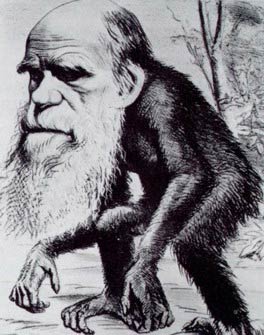Why Not Every Scientist Worships at Darwin’s Feet
By John Lennox | Aug 23, 2008

Next year marks the 150th anniversary of the publication of Charles Darwin’s On The Origin Of Species. The momentous occasion will be celebrated with new books, articles, documentaries and editorials. One commentator has called for a public holiday in Britain to honour Darwin – the “humble Shrewsbury family man who changed the world forever”.
For some, this anniversary celebrates the high point of human liberation from stultifying religion and superstition, our freedom from past theological “delusions”. For others, it is more complicated.
The leading atheist Richard Dawkins, speaking of this God delusion, as he calls it, offers a succinct summary of Darwin’s theory. “Given sufficient time, the non-random survival of hereditary entities ”¦ will generate complexity, diversity, beauty, and an illusion of design so persuasive that it is almost impossible to distinguish from deliberate intelligent design.” The power of evolution to simulate the illusion of design, says Dawkins, is threatening to what he suggestively calls a “certain kind of mind”. Mostly he means unscientific, naive or stupid.
But things aren’t so simple. Scattered among the world’s top scientists are those who do believe in a conscious intention behind nature’s processes. I think of people such as Francis Collins, director of the Human Genome Project, and Professor Bill Phillips, winner of the Nobel Prize for Physics in 1997. The presence of such people poses awkward questions for the view that evolutionary theory and a sophisticated scientific brain lead inexorably towards atheism. There must be more to the so-called “science versus God” story than this.
Indeed, the fact that there are brilliant scientists who believe in God and brilliant scientists who don’t makes it clear that the conflict is not a simplistic one between science and religion, but between opposing world views – naturalism and theism. Naturalism opposes supernaturalism and insists that the natural world exists without incursion from outside, or as Carl Sagan put it: “The cosmos is all there is, or was, or ever shall be.” The theistic view finds expression in the opening words of Genesis: “In the beginning God created the heavens and the earth.” Theism understands the universe not to be a closed system, but a creation, initiated and maintained by God.
The Genesis statement is a statement of belief, not a statement of science. This is precisely the case with Sagan’s assertion as well. He is expressing a personal belief that emanates from a world view, rather than science. When we ask ourselves whether science has sounded the death knell of God, we are really asking: “Which world view does science support, naturalism or theism?”
One scientist views images captured by the Hubble telescope of the unimaginably large scale of the universe and remains convinced of the random nature of a godless existence. Another stares through a scanning tunnelling microscope at the unimaginably small and complex entities of molecular biology and feels compelled to worship the creator. It isn’t the science itself that is definitive for the question of the divine.
The late evolutionary biologist Stephen Jay Gould wrote that science simply cannot “adjudicate the issue of God’s possible superintendence of nature”. For Gould, it was a mistake to apply scientific principles to questions of metaphysics.
In 2009, when the champagne is uncorked in celebration of Darwin’s legacy, we might pause to consider the presuppositions we bring to the question of what his theory tells us about God. There are essentially only two options. Either the wonder of human intelligence ultimately owes its origin to mindless matter; or there is a creator. It remains a mystery to me why some people claim it is their intelligence that leads them to prefer the first to the second.
John Lennox is professor of mathematics and fellow in the philosophy of science at Oxford University. He is a visiting scholar of the Centre for Public Christianity. Tomorrow he will take part in an IQ2 debate on the statement “We’d be better off without religion”, at 6.45pm in the City Recital Hall.















